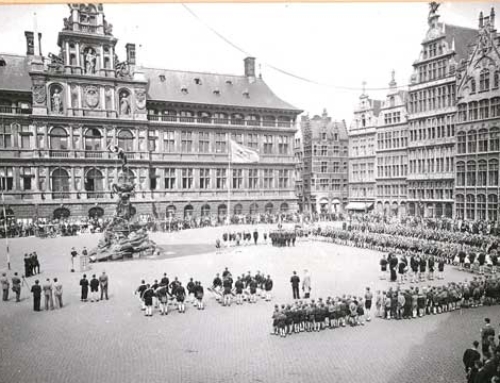As part of our series on Elie Wiesel’s “Night”, today we delve into life in Auschwitz, a name synonymous with the horrors of the Holocaust. This account is more than just a historical testimony; it’s a deep dive into the abyss of the human soul.
Missed the previous articles on the same topic? Read the first article here and the second here.
Auschwitz through Wiesel’s eyes
In “Night”, Elie Wiesel presents Auschwitz not merely as a place of unimaginable physical suffering but as a theatre of profound internal struggles. The gnawing hunger, bone-chilling cold, and the ever-present fear of death are described with surgical precision, leaving an indelible mark on the reader’s imagination. Each word chosen by Wiesel seems to carry the weight of the lived horror, making his narrative all the more poignant and real.
Beyond physical suffering: The psychological struggle
But it’s the psychological dimension of the Auschwitz experience that Wiesel captures with remarkable acuity. He paints a universe where hope seems extinguished, where human dignity is constantly trampled upon, and where each day is a battle against despair. The inmates, faced with absolute inhumanity, fight not just for physical survival but also to preserve a semblance of normality and humanity in an environment that seeks to strip them of it.
Reflection on human nature and the capacity for resilience
This narrative, far from being a mere chronicle of events, becomes a powerful mirror reflecting the depths of human cruelty. Wiesel does not just narrate; he questions, provokes, and challenges the reader to understand the incomprehensible. How can man, capable of so much beauty and goodness, also be capable of such atrocities?
“Night” thus serves as a brutal and necessary reminder of what man can inflict upon his fellow man, a meditation on the nature of evil and the human spirit’s capacity to endure and even transcend the deepest darkness.
Wiesel’s internal conflicts and survival mechanisms
In the heart of Auschwitz’s horror, Elie Wiesel confronts his own inner demons, trials that transcend the mere struggle for physical survival. He faces a loss of faith, a deep despair that seeps into his being, and a ceaseless battle to maintain a semblance of humanity in an environment that seeks to erode it at every turn. These spiritual and emotional challenges are depicted with an intensity that touches the reader’s soul.
His survival mechanisms are varied and deeply human. Wiesel clings to memories, fragments of his past before the horror, which serve as a lifeline in a sea of despair. He also finds comfort in his relationship with his father, a bond that remains a beacon of humanity in the darkest night. Even in his moments of doubt, where faith and hope seem unreachable, Wiesel manages to find an inner strength, testifying to the incredible resilience of the human spirit in the face of extreme adversity. These aspects of his experience offer a unique perspective on man’s capacity to persevere even in the most challenging circumstances.
Dehumanization and its psychological impacts
The dehumanization experienced in Auschwitz goes far beyond manifest physical brutality. It deeply infiltrates the soul, corroding the very essence of what makes us human. This experience is not limited to bodily pain or material deprivation; it attacks the very identity of the detainees, nibbling away at their dignity and sense of self. Elie Wiesel, in his poignant narrative, sheds light on these devastating psychological effects of dehumanization.
He describes how, under the crushing weight of this systematic dehumanization, individuals are reduced to shadows of their former selves. The prisoners of Auschwitz, faced with a constant denial of their humanity, struggle not only for physical survival but also to preserve their mental and emotional integrity. Wiesel forcefully underscores the crucial importance of remembering these historical lessons. He reminds us that understanding and acknowledging these dark chapters of the past are essential to prevent such atrocities from recurring in the future. His narrative serves as a solemn warning against forgetfulness and indifference, urging us to remain vigilant in protecting and preserving human dignity under all circumstances.
Modern relevance: Human rights violations and the importance of empathy
The lessons of Auschwitz, as described in “Night”, remain burning in their relevance. Human rights violations, dehumanization, are not mere chapters of history. This narrative reminds us of the crucial importance of empathy and resilience in our contemporary world.
We invite our readers to reflect on these teachings and to commit to a world where human dignity is universally respected.







